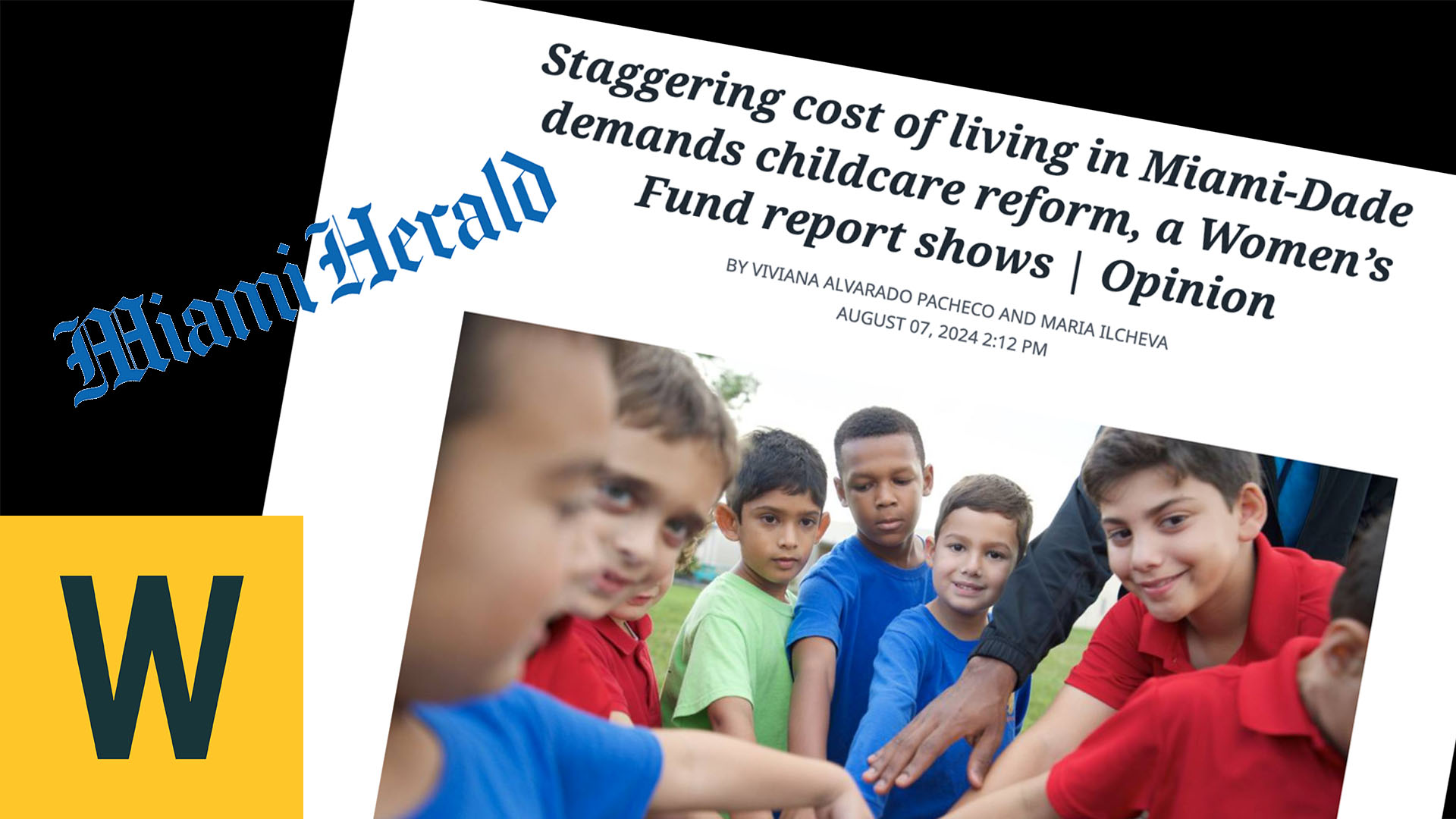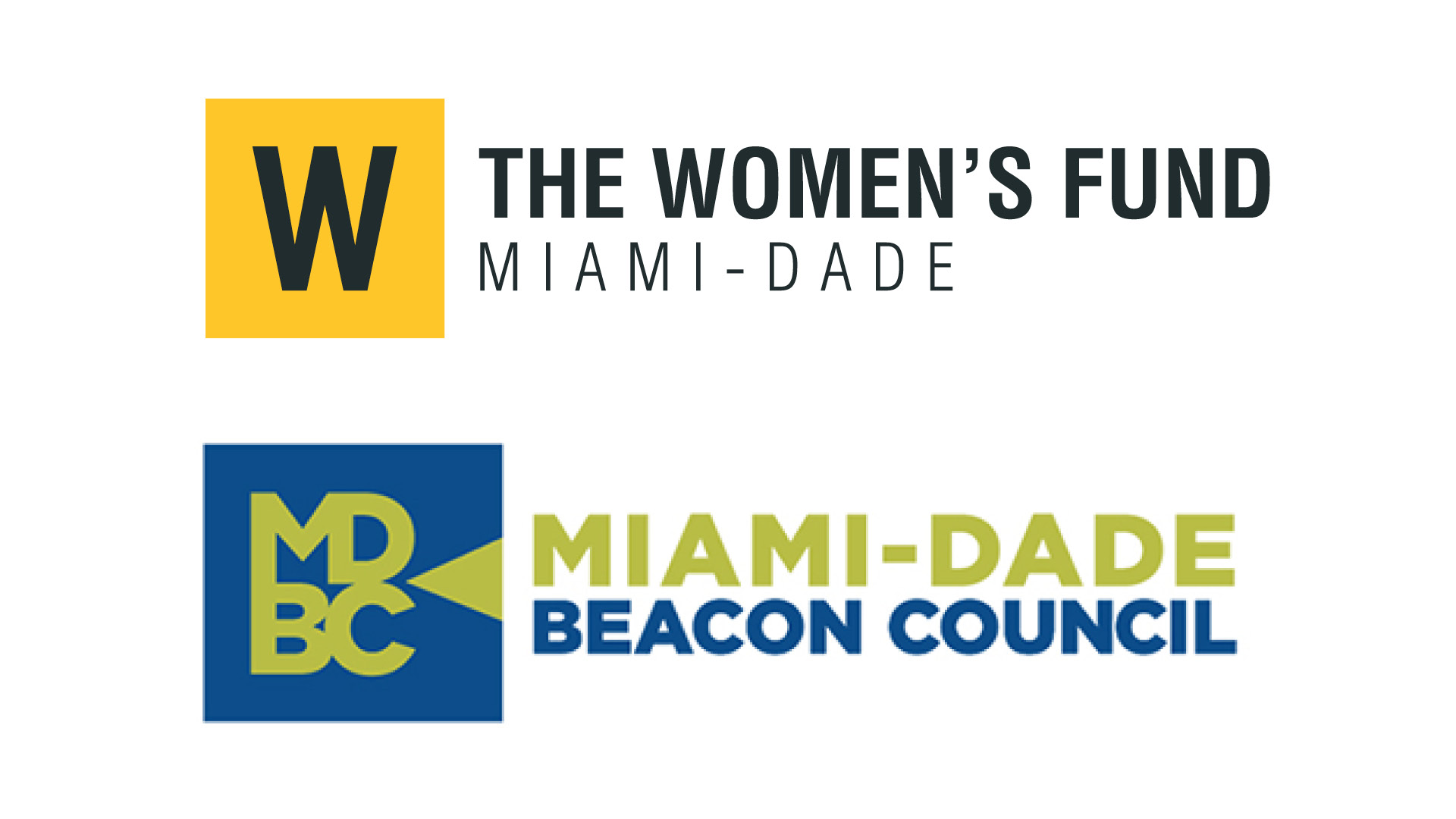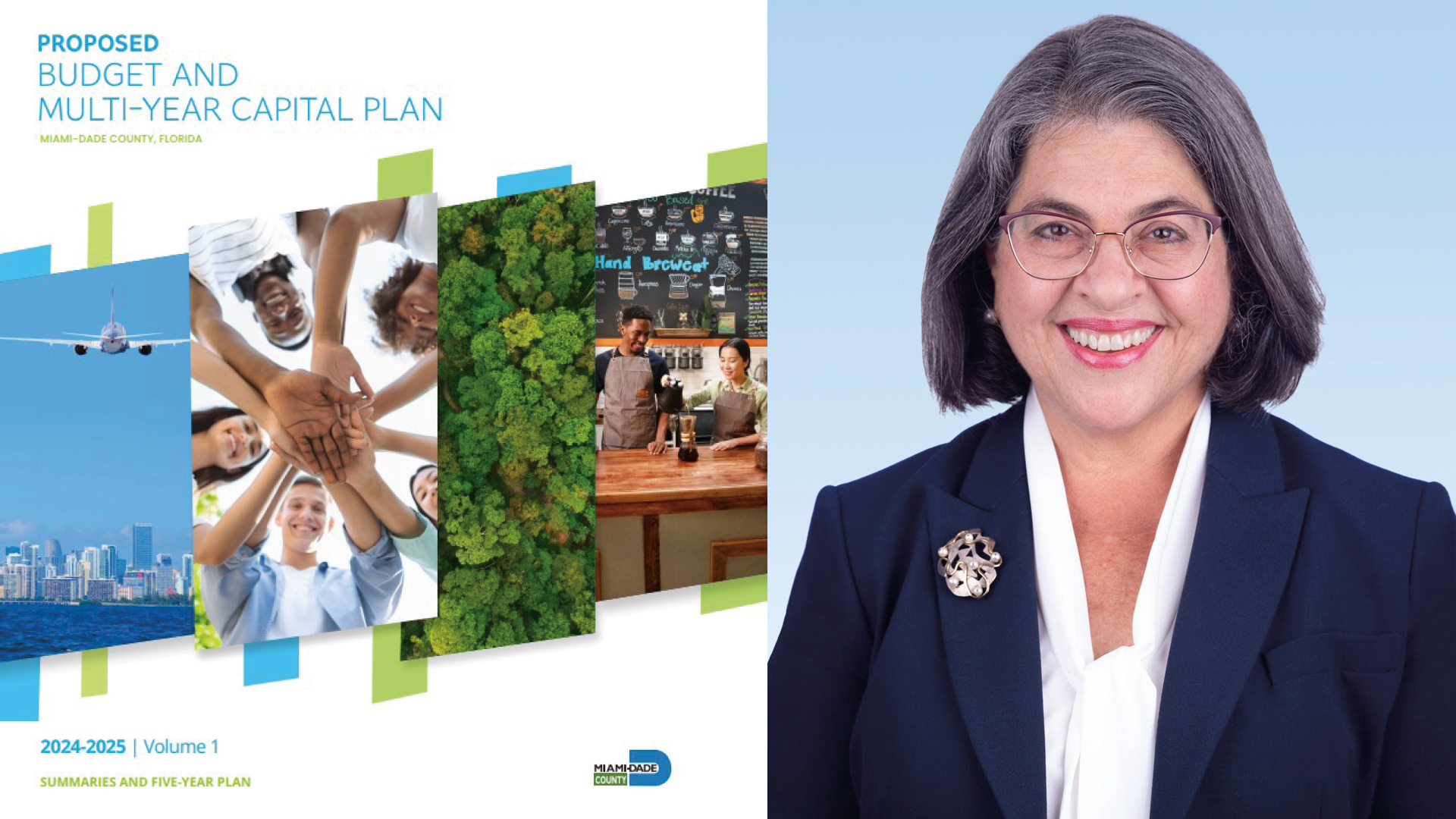Staggering cost of living in Miami-Dade demands childcare reform, a Women’s Fund report shows
Opinion BY VIVIANA ALVARADO PACHECO AND MARIA ILCHEVA AUGUST 07, 2024 2:12 PM
Read the original article at: https://www.miamiherald.com/opinion/article290829679.html#storylink=cpy
In Miami-Dade’s vibrant and diverse landscape, the allure of sun-soaked beaches and cultural richness masks a stark economic reality — many Miami-Dade families struggle to pay for necessities. One adult living without a partner or children needs an annual income of $49,465 to meet basic needs. Adding an infant into the mix requires $81,969, while a second school-age child brings the basic needs income to $95,738. Finally, adding another adult to make a family of four raises the annual income needed to $108,574 ($9,048 monthly). These calculations are based on the Miami-Dade Self-Sufficiency Standard Dashboard, developed by The Women’s Fund Miami-Dade (WFMD).
The Self-Sufficiency Standard reflects the true cost of living in Miami-Dade. We know we have a housing crisis, but other related challenges impact our community’s ability to build a resilient future. In addition to housing, the self-suffiency report considers the costs of childcare, food, transportation, health care and taxes. After housing, childcare costs are the second largest expense for families, particularly single-parent households. Declining birth rates, low labor force participation rates and low productivity are some of the economic consequences of the childcare crisis.
How do these costs compare to what families can, in reality, afford? How many Miami-Dade families can manage without public and/or private assistance? According to the American Community Survey, the median household income of families with children under 18 was $72,022 (2022), while female-led households with children earned $37,585 (2022). With 26% of families being female-led, childcare has far-reaching consequences for women’s economic mobility. It is important to shift the narrative from childcare to early childhood learning to denote that children need a place to stay when parents are at work and a place to learn and develop. Access to affordable, quality early learning benefits our children and our economy.
High early learning costs force many women to make difficult choices such as reducing their working hours, declining job opportunities, or leaving the workforce altogether. The Women’s Fund Miami-Dade recognizes the lack of a thriving childcare infrastructure as an impediment to women’s economic advancement. That is why we invested in three early learning initiatives for our current grant-making cycle. We hear the community sound the alarm on the early learning crisis, also reflected in the report.
The Miami-Dade Self-Sufficiency Standard, produced with data collected by the University of Washington Center for Women’s Welfare, is a clarion call for policymakers and the business community to take meaningful action to address the systemic problems of the early learning sector. Policymakers must prioritize public funding and subsidies that alleviate the financial strain for families; however, these alone will not solve the issue. It is also critical to strengthen private business support of the early learning sector.
In partnership with The Children’s Trust, through their Innovation Fund, the WFMD is looking at best practices to develop a business-to-bussiness model tailored to Miami-Dade as a strategic solutions for the private sector. There is a clear need for a B2B model, where businesses can partner with early learning centers to provide their employees with affordable and quality early learning options. These employer subsidies make business sense. Providing early learning brings competitive advantages, including the opportunity to bring in those from the sidelines, part-time workers, most of whom are women, back to the full-time workforce. It’s an investment in the future of our local economy, as early learning produces long-term benefits in health, well-being and productivity.
The Miami-Dade Self-Sufficiency Standard is more than a measure of economic stability; it is a wake-up call. It highlights the urgent need for public and private economic reforms that address the early learning crisis and ensure that all families have the opportunity to thrive. As we move forward, let us use this standard as a guide to inform and create a more equitable and sustainable economic environment for all residents of Miami-Dade.
Viviana Alvarado Pacheco is senior research and policy manager for The Women’s Fund Miami-Dade. Maria Ilcheva is the group’s board chair.

Vivian Alvarado Pacheco, Women’s Fund







